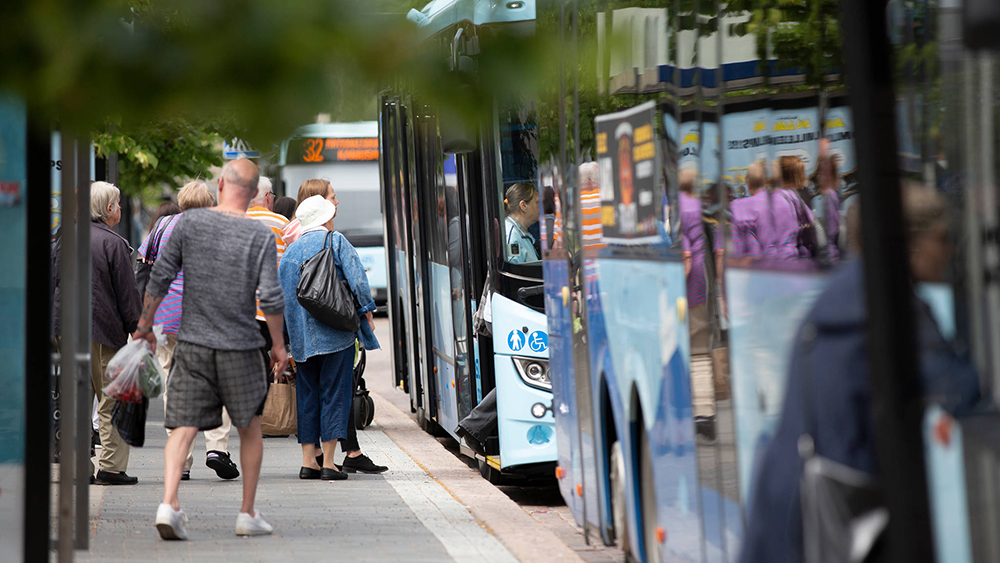Preparations begin on thematic agreements between cities and the central government

As part of the strong urban policy package, the Ministry of Economic Affairs and Employment will launch the preparation of thematic agreements with cities. Preparation will begin with a survey that will be sent to cities to assess their readiness and needs for thematic agreements.
The urban policy of Prime Minister Petteri Orpo’s Government is based on a fair partnership between the central government and cities. The idea is that growth generated by a strong urban policy will benefit society as a whole and also provide resources for developing rural regions.
As part of its urban policy, the Government will make use of various agreements between the central government, cities and urban areas. The Government Programme includes four contractual models: ecosystem agreements, land use, housing and transport agreements (MAL agreements), new strategic alliances and new thematic agreements.
“It makes sense to develop the relationship between municipalities and the central government on the basis of strong partnerships, for example, by entering into agreements on particular themes. The new agreement models are premised on the needs and ideas of cities or groups of cities. In particular, thematic agreements are suitable for cities or groups of cities that want to develop a partnership with the Government around a certain theme. The aim is to join forces to strengthen the development of cities and thereby Finland as a whole,” says Minister of Local and Regional Government Anna-Kaisa Ikonen.
The preparation of thematic agreements will begin with a survey sent to cities. The survey will be sent to the 23 largest cities or the regional cities, excluding the cities covered by the so-called alliance agreement.
The survey will inquire about the cities’ needs for thematic agreements and preliminary ideas concerning the themes. The agreements will be prepared in close cooperation with a working group on urban policy, which will be appointed during October. After an assessment of the readiness and needs of cities for agreements and an evaluation by the central government parties, the Ministry will make a decision on thematic agreements and their number.
“Cities have already expressed ideas of possible themes. The aim is to conclude effective thematic agreements that are suitable for a particular city or group of cities and their development needs. This supports the Government Programme’s idea that municipalities and regions are different and the solutions should therefore also take into account different needs. We also need measures that cover all municipalities, such as the reform of central government transfers to local government for basic public services and the deregulation programme that is about to begin,” Ikonen adds.
Cities can respond to the survey until the 2nd of November . The survey will be sent to Jyväskylä, Kuopio, Lahti, Pori, Kouvola, Joensuu, Lappeenranta, Vaasa, Hämeenlinna, Seinäjoki, Rovaniemi, Mikkeli, Porvoo, Salo, Kotka, Kokkola, Hyvinkää and Kajaani.
Inquiries
Katja Palonen, Chief Specialist, Ministry of Economic Affairs and Employment, tel. +358 295 047 071
Olli Voutilainen, Senior Specialist, Ministry of Economic Affairs and Employment, tel. +358 295 064 919
Minna Kurki, Special Adviser to the Minister of Local and Regional Government, Ministry of Finance, tel. +358 50 437 2718
Facts
Urban policy agreements
Ecosystem agreements are concluded with the Greater Helsinki area and other university cities and towns. Participating cities and towns are Helsinki, Espoo, Vantaa, Tampere, Turku, Oulu, Rovaniemi, Vaasa, Joensuu, Kuopio, Jyväskylä, Lappeenranta (incl. Imatra), Lahti, Pori, Seinäjoki, Mikkeli, Kajaani (incl. Sotkamo) and Kokkola. Implementation of the agreements focusing on the development of innovation ecosystems will primarily take place with the EU’s resources for sustainable urban development in the programming period 2021–2027.
MAL agreements on land use, housing and transport have been concluded since 2011, and the existing agreements will be updated during this government term. They currently cover the urban regions of Helsinki, Oulu, Tampere, Turku, Jyväskylä, Kuopio and Lahti.
The Government Programme includes the new cooperation forms of thematic agreements and a strategic alliance, which is based on cooperation between the six largest cities of Helsinki, Espoo, Tampere, Vantaa, Oulu and Turku.
Cooperation also takes place in the working group on urban policy, which includes the 21 largest cities, Kokkola, Kajaani and representatives of regional cities.
With regard to regional policy, the Government will launch a programme for northern Finland under the Prime Minister’s Office and continue its work on the vision for developing eastern Finland under the Ministry of Economic Affairs and Employment.
